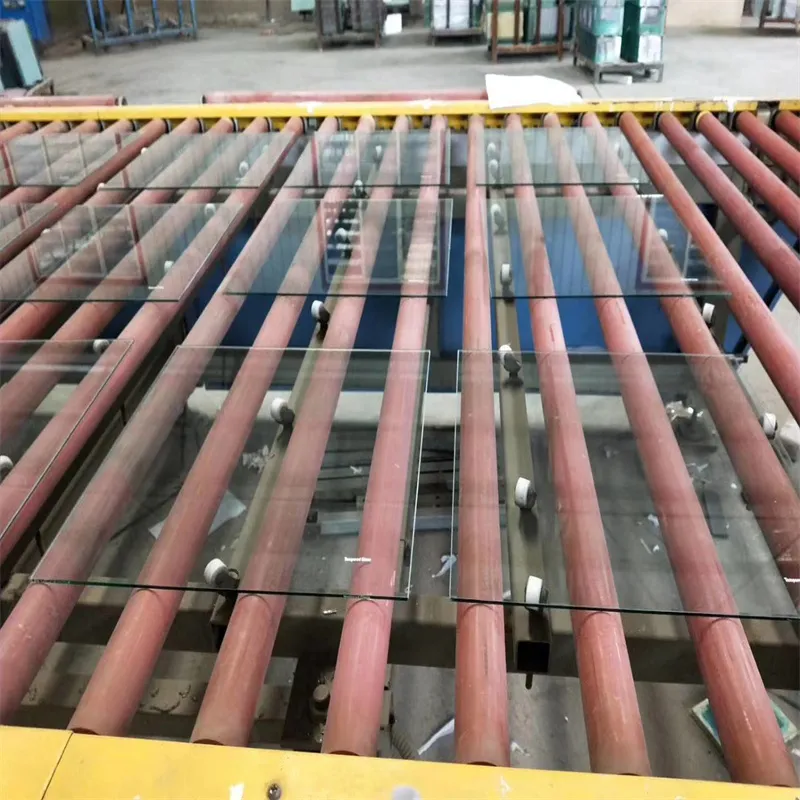Dec . 13, 2024 19:55 Back to list
Innovative Float Glass Panel Solutions for Modern Architecture and Design
Exploring the Advantages of Float Glass Panels A Comprehensive Overview
Float glass panels have become an essential architectural element in modern design, revolutionizing the way we perceive and interact with building spaces. Known for their clarity, strength, and versatility, these panels have found applications in various fields, including residential, commercial, and industrial settings. This article provides an in-depth look at float glass panels, detailing their manufacturing process, benefits, and diverse applications.
Manufacturing Process
The float glass production process is a remarkable feat of engineering that guarantees high-quality results. The process begins with the raw materials silica sand, soda ash, and limestone, which are carefully mixed and melted at high temperatures in a furnace. The molten glass is then carefully poured onto a bed of molten tin, a crucial step that gives float glass its smooth, flat surface. The glass spreads out on the tin, forming a continuous ribbon that, as it cools, turns into large sheets of glass.
The name float glass comes from this unique method, as the glass floats on top of the molten tin, allowing for an even thickness and a flawless finish. After being cut into various sizes, these glass panels undergo further processes such as annealing and polishing to enhance their properties. The result is a highly transparent, uniform glass that is perfect for a multitude of applications.
Key Advantages
Float glass panels boast numerous advantages that make them a preferred choice in construction and design
1. Transparency and Aesthetic Appeal The clarity of float glass panels allows for maximum natural light penetration, creating bright and inviting spaces. This transparency also enhances architectural beauty, enabling unobstructed views and an overall sense of openness.
2. Strength and Durability Despite their delicate appearance, float glass panels are exceptionally strong and can withstand considerable stress. This architectural robustness makes them suitable for various applications, including large windows and facades.
float glass panels

3. Energy Efficiency Float glass panels can be manufactured with low-emissivity (low-E) coatings that reflect heat and UV radiation. This feature helps regulate indoor temperatures, reduces heating and cooling costs, and minimizes reliance on artificial lighting, contributing to energy savings and sustainability.
4. Versatility Float glass can be treated (tempered, laminated, or coated) to meet specific requirements. This adaptability makes it suitable for use in windows, doors, facades, balustrades, and even furniture.
5. Easy Maintenance One of the standout benefits of float glass panels is their ease of cleaning. Their smooth surface resists dust accumulation and can be easily wiped down, making them a practical choice for various environments.
Applications in Various Industries
Float glass panels are utilized across multiple sectors due to their advantageous properties. In residential architecture, they are employed in windows to maximize light and enhance views. In commercial spaces, large glass facades are common, allowing for a modern aesthetic while enabling visibility and transparency between the indoors and outdoors.
Beyond architecture, float glass is increasingly used in other industries. In automotive manufacturing, it is a key ingredient in windshields and windows, combining clarity with safety. Additionally, float glass panels are being used in innovative ways, such as in solar energy applications, where they serve as protective coverings for solar panels and energy-efficient windows.
Conclusion
Float glass panels represent a pinnacle of contemporary design and engineering, merging aesthetic appeal with functional advantages. Their exceptional clarity, strength, and versatility make them invaluable in a wide range of applications, from residential homes to commercial buildings and beyond. As the demand for sustainable and energy-efficient products continues to rise, float glass panels will likely play an integral role in shaping the future of architectural design. By embracing this remarkable material, architects and builders can create spaces that are not only beautiful and inviting but also functional and environmentally friendly.
-
Safety and Style with Premium Laminated Glass Solutions
NewsJun.24,2025
-
Reinvents Security with Premium Wired Glass
NewsJun.24,2025
-
Premium Float Glass Line for Modern Architecture
NewsJun.24,2025
-
Low Emissivity Glass for Energy-Efficient Architecture
NewsJun.24,2025
-
High-Performance Insulated Glass Solutions for Modern Architecture
NewsJun.24,2025
-
Elevates Interior Style with Premium Silver Mirror
NewsJun.24,2025
Related PRODUCTS














